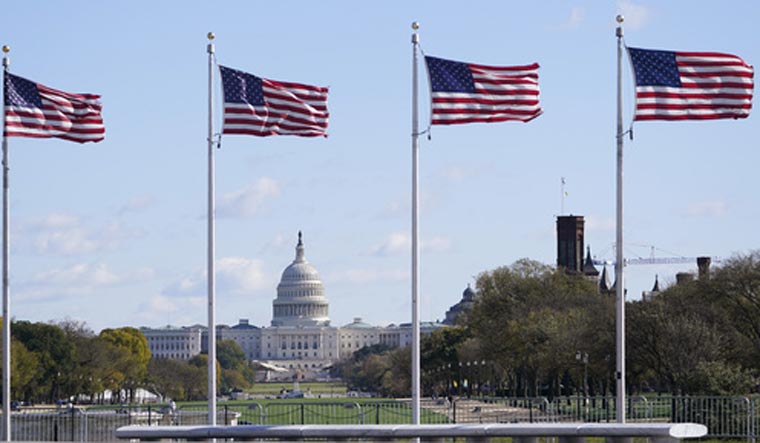Given the shrill rhetoric on display from US President Donald Trump and Joe Biden, it is easy to think the US presidential race on Tuesday is the only election that matters.
But the presidential election is just one of many elections being held on Tuesday. Voting will be held on Tuesday to offices of local bodies; 11 states and two US territories will elect governors, the entire US House of Representatives (435 members) is up for election and voting will be held for 33 seats of the 100-member Senate.
Of these numerous elections, the races to the US House of Representatives and Senate—collectively called the Congress—could very well affect the nature of the next presidency, irrespective of who enters the White House.
House of Representatives
The House of Representatives is the country's lower legislative body. The 435 representatives are all elected from the 50 states. The number of representatives per state is decided based on a state's division into Congressional districts on the basis of population. California, the most populous state, has 53 Congressional districts and sends 53 representatives to the House. Alaska is the largest state of the US, but sends only one representative as its population density is low.
The members of the House are elected to a two-year tenure. The Democrats won a majority in the House in the 2018 midterm polls and currently hold 232 seats to the Republicans' 197. The Democrats expect to retain control of the House of Representatives in Tuesday's election.
Senate
Each of the 50 states elect two senators to the 100-member Senate. The senators serve a total tenure of six years, but the election schedule of the Senate is staggered such that one-third of the Senate seats are up for election in two-year cycles. The Republicans retained control of the Senate in the 2018 midterm polls and have 53 senators compared with the Democrats' 47.
Why House is important
The House of Representatives would play the major role in deciding the next president in the “very unlikely” event of either Biden or Trump not getting 270 Electoral College votes.
This possibility has happened only twice in the past: In 1800 and 1824, the House elected the president in the absence of a clear Electoral College victory. The House chose from the top candidates in the Electoral College votes.
However, the voting procedure for such an election is different and the Democrats' expected numerical advantage in the House may not help.
"Each of the 50 House delegations—which consists of representatives from every congressional district in that state—receives only one vote. So California, with its 53 House representatives, gets one vote, and Montana, with its one House representative, also gets one vote. And that vote is determined by the majority of the delegations," The Los Angeles Times explains. Republicans currently lead in 26 state delegations and the Democrats in 23.
In the event, no president is chosen by January 20 of the next year, the House Speaker, Nancy Pelosi, becomes sworn in as acting president!
Why Senate is important
The Senate is the body that confirms senior executive and judicial positions that the president makes. This includes members of the president's administration, federal courts and the US Supreme Court.
As is the case with the House electing the president in the event of Electoral College deadlock, the Senate would elect the vice president in such a situation. However, rules for electing the vice president under such circumstances are simpler, with a candidate needing only a simple majority of 67 senators in favour.
President Donald Trump had indicated he wanted the Republicans to gain a majority in the Senate in the event he won re-election. A president who does not have a majority in either the House or Senate would have a 'lame duck' tenure as George W. Bush (2006) and Barack Obama (2014) did. A lame duck president would have little leeway to push through administrative programmes,





